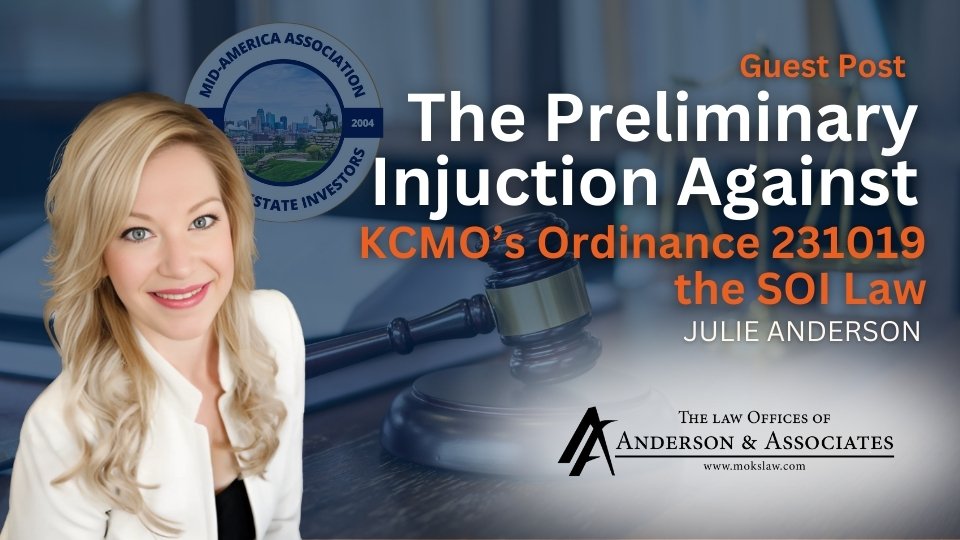
Missouri Court Grants Preliminary Injunction Against Kansas City’s Ordinance 231019
A federal court has blocked Kansas City, Missouri, from enforcing a controversial ordinance requiring landlords to accept Section 8 housing vouchers as part of their rental qualification process. In the case Jones & Vogel v. City of Kansas City, Missouri (Case No. 4:24-cv-00649- RK), Judge Roseann A. Ketchmark granted the preliminary injunction on February 11, 2025, effectively halting enforcement of the ordinance while the case proceeds.
Background: Kansas City’s Ordinance and the Lawsuit
Kansas City’s Committee Substitute for Ordinance No. 231019 was enacted to expand fair housing protections. It prohibited landlords from rejecting tenants based on their source of income, explicitly including federal Housing Choice Vouchers (Section 8).
Landlords Kennedy F. Jones and Stephen J. Vogel filed a lawsuit, arguing the ordinance was unconstitutional because:
- It violated their Fourth Amendment rights by forcing them to consent to warrantless inspections and other program regulations required under the Section 8 Housing Assistance Payments (HAP) contract.
- It conflicted with federal law, which makes landlord participation in Section 8 voluntary, thus violating the Supremacy Clause.
The landlords requested a preliminary injunction to prevent the city from enforcing the ordinance while the case was litigated.
Key Court Findings
In a 17-page order, Judge Ketchmark ruled in favor of the landlords, citing the following key reasons:
- The Ordinance Effectively Mandates Section 8 Participation
- While the ordinance does not explicitly force landlords to participate in Section 8, its structure makes participation mandatory in practice.
- The prior version of the City Code protected landlords’ right to opt out of subsidy programs, but that safeguard was removed in the amended ordinance.
- Likely Fourth Amendment Violation
- Landlords must sign a HAP contract to accept Section 8 vouchers, which requires them to consent to government inspections of their rental units and business records.
- Because landlords face fines and penalties for non-compliance, any consent to the searches would be coerced, violating the Fourth Amendment’s protection against unreasonable searches and seizures.
- Risk of Irreparable Harm to Landlords
- The court recognized that constitutional rights violations cause irreparable harm.
- Without an injunction, landlords could be forced to accept Section 8 tenants, triggering mandatory government oversight, inspections, and other burdens.
- Balancing of Interests and Public Impact
- While the ordinance aimed to expand housing options for low-income tenants, preserving constitutional rights outweighs policy goals.
- The public interest is best served by protecting landlords’ Fourth Amendment rights.
What Happens Next?
- The injunction takes effect immediately and will remain in place while the case is
litigated. (Only pertains to the taking of Section 8 Part) - Kansas City cannot enforce the ordinance against landlords declining Section 8 vouchers.
- The case is ongoing, and a final ruling on the constitutionality of the ordinance is still pending.
The court could find in the plantifs favor or they could rule in favor of the ordinance. Stay informed.

Julie Anderson
Chief Executive Attorney & Managing Partner at Anderson & Associates
Visit website: MOKSLaw.com








